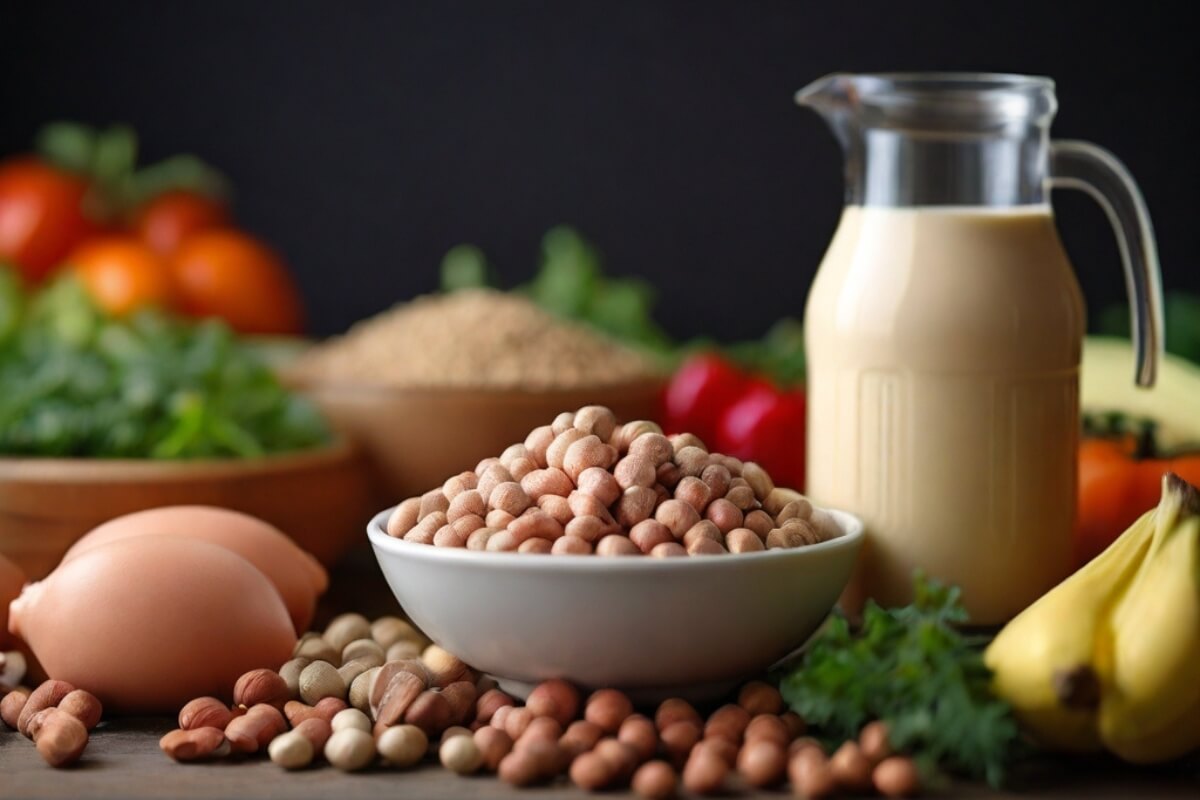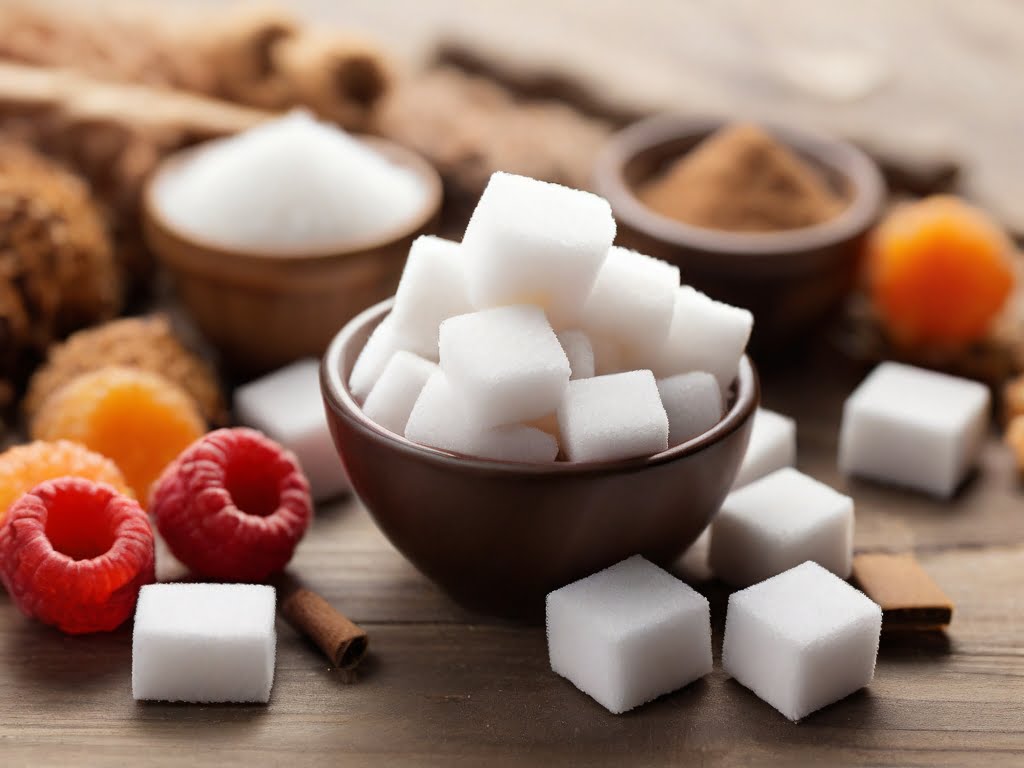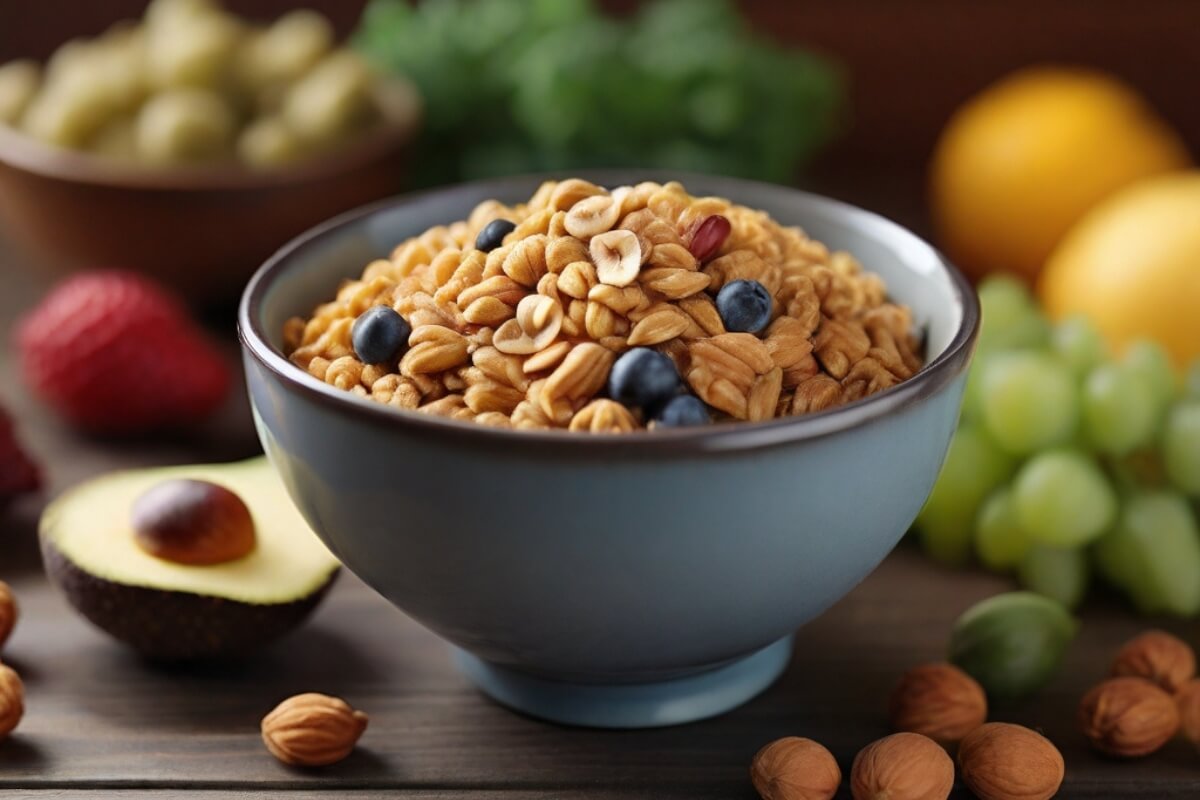7 Ways to Lose Weight Fast
Losing weight is a common goal for many people, but it can also be a challenge. There are many factors that affect how fast and how much weight you can lose, such as your age, gender, metabolism, activity level, diet, and lifestyle. However, there are also some proven strategies that can help you lose weight faster and more effectively. In this article, we will explore seven scientific ways to lose weight fast, based on research and evidence. These methods include:
- Intermittent fasting
- Tracking your diet and exercise
- Eating mindfully
- Increasing your protein intake
- Reducing your sugar intake
- Boosting your fiber intake
- Improving your gut health
How I Lost 10 Pounds in a Month with Intermittent Fasting

Intermittent fasting (IF) is a pattern of eating that involves alternating periods of fasting and eating within a certain time window. For example, you may fast for 16 hours and eat only during an 8-hour window, or you may fast for two days a week and eat normally for the rest of the week. The idea behind IF is that by restricting your calorie intake, you can create a calorie deficit and stimulate your body to burn fat for energy.
I decided to try IF after reading about its benefits for weight loss, health, and longevity. I chose the 16/8 method, which means I would eat only between 12 pm and 8 pm, and fast for the rest of the day. I also made sure to drink plenty of water, herbal tea, and black coffee during my fasting hours, to stay hydrated and suppress my appetite.
At first, it was hard to adjust to the new eating schedule. I felt hungry and irritable in the mornings, and I craved snacks and sweets in the evenings. However, after a few days, I noticed that my hunger levels decreased and my energy levels increased. I also felt more satisfied with my meals, and I stopped snacking between them. I started to enjoy the feeling of being in control of my eating habits, and I looked forward to breaking my fast with a nutritious and delicious meal.
After a month of IF, I was amazed by the results. I had lost 10 pounds, and I felt lighter, leaner, and healthier. My clothes fit better, and my skin looked clearer. I also noticed improvements in my blood pressure, cholesterol, and blood sugar levels. I was very happy with my progress, and I decided to continue with IF as a lifestyle change.
Tips and Tricks to Track Your Diet and Exercise

One of the best ways to lose weight fast is to track your diet and exercise. By keeping a record of what you eat and how much you move, you can monitor your calorie intake and expenditure, and make adjustments as needed. Tracking your diet and exercise can also help you identify patterns, habits, and triggers that affect your weight loss goals, and motivate you to stay on track.
There are many tools and apps that can help you track your diet and exercise, such as MyFitnessPal, Lose It, Fitbit, and Strava. These tools can help you log your food intake, calories, nutrients, portions, and water intake, as well as your physical activity, steps, distance, calories burned, heart rate, and sleep. Some of them can also sync with other devices, such as smartwatches, scales, and fitness trackers, to give you a more comprehensive overview of your health and fitness.
Here are some tips and tricks to make the most of tracking your diet and exercise:
- Be consistent. Try to track your diet and exercise every day, or at least most days of the week. This will help you get a more accurate picture of your progress and trends, and keep you accountable and focused.
- Be honest. Don’t cheat or lie to yourself when tracking your diet and exercise. Record everything you eat and drink, even if it’s a small bite or sip, and don’t forget to include condiments, sauces, dressings, and toppings. Also, don’t overestimate or underestimate your physical activity, and use a reliable device or app to measure it.
- Be realistic. Set realistic and attainable goals for your weight loss, and track your progress regularly. Don’t expect to lose weight overnight, or to see dramatic changes every week. Aim for a healthy and sustainable rate of weight loss, which is about 1 to 2 pounds per week, or 4 to 8 pounds per month. Celebrate your achievements, and don’t get discouraged by minor setbacks or plateaus.
- Be flexible. Don’t be too rigid or obsessive when tracking your diet and exercise. Allow yourself some room for error, and don’t let a bad day or week ruin your efforts. Remember that tracking your diet and exercise is a tool to help you lose weight, not a rule to follow. You can still enjoy your favorite foods and activities, as long as you balance them with moderation and variety.
How to Eat Mindfully and Lose Weight

Mindful eating is a practice that involves paying attention to how and why you eat, and being present and aware of your sensations, thoughts, and emotions while eating. Mindful eating can help you lose weight fast, by helping you:
- Eat less. By eating slowly, chewing thoroughly, and savoring every bite, you can reduce your food intake and feel more satisfied with less. You can also avoid overeating by listening to your hunger and fullness cues, and stopping when you are comfortably full.
- Eat better. By paying attention to what you eat, and how it affects your body and mind, you can make healthier and more mindful choices. You can also avoid emotional eating, which is eating for reasons other than physical hunger, such as stress, boredom, loneliness, or sadness.
- Eat happier. By eating mindfully, you can enjoy your food more, and appreciate its flavors, textures, colors, and aromas. You can also improve your relationship with food, and avoid guilt, shame, or anxiety associated with eating.
Here are some ways to eat mindfully and lose weight:
- Eliminate distractions. When you eat, focus on your food, and nothing else. Turn off the TV, computer, phone, or any other device that may distract you from your meal. Eat at a table, not on the couch, bed, or desk. Eat with others, if possible, and engage in meaningful conversations.
- Use your senses. Before you eat, look at your food, and notice its appearance and presentation. As you eat, smell, taste, and feel your food, and notice how it changes as you chew and swallow. After you eat, notice how you feel, physically and emotionally.
- Pause and breathe. Before you start eating, take a few deep breaths, and relax your body and mind. During your meal, pause between bites, and put down your utensils. Check in with your hunger and fullness levels, and ask yourself if you are still hungry, or if you have had enough.
- Be grateful. Before, during, and after your meal, express gratitude for your food, and for the people who grew, prepared, and shared it with you. Appreciate the nourishment and pleasure that your food provides, and the opportunity to eat mindfully.
Why Protein Is Your Best Friend for Weight Loss

Protein is one of the three macronutrients that your body needs, along with carbohydrates and fats. Protein is essential for building and repairing your muscles, organs, skin, hair, and nails, as well as for making hormones, enzymes, and antibodies. Protein is also your best friend for weight loss, for several reasons:
- Protein boosts your metabolism. Protein has a higher thermic effect than carbs or fats, which means that your body burns more calories to digest and absorb it. Protein also helps you build and maintain muscle mass, which increases your resting metabolic rate, or the number of calories you burn at rest.
- Protein reduces your appetite. Protein is more satiating than carbs or fats, which means that it makes you feel fuller for longer, and reduces your hunger and cravings. Protein also helps regulate your blood sugar and insulin levels, which prevents spikes and crashes that can trigger overeating.
- Protein preserves your muscle. When you lose weight, you lose both fat and muscle, but you want to keep as much muscle as possible, because muscle is metabolically active and helps you burn more calories. Protein helps you preserve your muscle mass, by providing the amino acids that your muscles need to repair and grow.
How much protein do you need to lose weight fast? The answer depends on your age, weight, activity level, and health goals, but a general recommendation is to consume 0.8 to 1.2 grams of protein per kilogram of body weight per day. For example, if you weigh 70 kilograms, you should aim for 56 to 84 grams of protein per day. You can get protein from both animal and plant sources, such as:
- Meat, poultry, fish, and eggs
- Dairy products, such as milk, yogurt, and cheese
- Nuts, seeds, and nut butters
- Beans, lentils, and soy products
- Quinoa, oats, and buckwheat
How Sugar Is Sabotaging Your Weight Loss Efforts

Sugar is one of the most addictive and harmful substances that you can consume, especially if you want to lose weight fast. Sugar is a simple carbohydrate that provides quick energy, but
also has many negative effects on your health and weight, such as:
- Sugar spikes your blood sugar and insulin levels. When you eat sugar, your blood sugar rises rapidly, and your pancreas releases insulin to bring it down. Insulin is a hormone that helps your cells use glucose for energy, but it also signals your body to store excess glucose as fat. High blood sugar and insulin levels can also lead to insulin resistance, which is a condition where your cells become less responsive to insulin, and your body needs more of it to maintain normal blood sugar levels. Insulin resistance can increase your risk of type 2 diabetes, obesity, and cardiovascular disease.
- Sugar increases your appetite and cravings. Sugar is not very filling, and it can make you hungry again soon after eating it. Sugar also activates the reward center of your brain, and releases dopamine, a neurotransmitter that makes you feel good. This can create a cycle of addiction, where you crave more sugar to get the same dopamine rush, and you become less sensitive to other rewards. Sugar can also interfere with your hormones that regulate your appetite, such as leptin and ghrelin, and make you overeat.
- Sugar damages your liver and kidneys. Sugar is metabolized by your liver, which converts it into glycogen, a form of stored energy. However, when you eat too much sugar, your liver can become overloaded, and start to convert excess sugar into fat. This can lead to fatty liver disease, which is a condition where fat accumulates in your liver cells, and impairs its function. Fatty liver disease can cause inflammation, scarring, and cirrhosis of the liver, and increase your risk of liver cancer. Sugar can also harm your kidneys, by increasing your blood pressure and causing kidney stones.
How much sugar should you eat to lose weight fast? The answer is as little as possible. The World Health Organization (WHO) recommends that you limit your added sugar intake to no more than 10% of your total daily calories, or about 50 grams for an average adult. However, some experts suggest that you aim for even less, such as 25 grams or less per day. You can reduce your sugar intake by:
- Avoiding processed foods, such as candy, cookies, cakes, pastries, soda, juice, and sports drinks, which are loaded with added sugar and empty calories.
- Reading nutrition labels, and checking the ingredients list for hidden sources of sugar, such as sucrose, glucose, fructose, maltose, dextrose, corn syrup, honey, agave, molasses, and maple syrup.
- Choosing natural and whole foods, such as fruits, vegetables, nuts, seeds, and whole grains, which contain natural sugars, but also provide fiber, vitamins, minerals, and antioxidants.
- Using natural sweeteners, such as stevia, monk fruit, erythritol, or xylitol, which are low in calories and have little or no impact on your blood sugar and insulin levels.
- Satisfying your sweet tooth with healthy alternatives, such as dark chocolate, yogurt, berries, or cinnamon, which can curb your cravings and offer some health benefits.
How Fiber Can Help You Lose Weight Fast

Fiber is another macronutrient that your body needs, along with protein, carbs, and fats. Fiber is a type of carbohydrate that your body cannot digest or absorb, but it plays an important role in your digestive health and weight loss. Fiber can help you lose weight fast, by helping you:
- Feel fuller for longer. Fiber adds bulk to your food, and slows down the digestion and absorption of nutrients. This makes you feel more satisfied with your meals, and reduces your hunger and appetite. Fiber also helps regulate your blood sugar and insulin levels, and prevents spikes and crashes that can trigger overeating.
- Burn more calories. Fiber has a higher thermic effect than carbs or fats, which means that your body burns more calories to process it. Fiber also helps you maintain a healthy weight, by promoting the growth of beneficial bacteria in your gut, which can improve your metabolism and immunity.
- Flush out toxins and waste. Fiber helps your bowel movements, and prevents constipation, bloating, and inflammation. Fiber also helps your body get rid of excess water, salt, and fat, and detoxifies your system.
How much fiber do you need to lose weight fast? The answer depends on your age, gender, and health goals, but a general recommendation is to consume 25 to 30 grams of fiber per day. You can get fiber from both soluble and insoluble sources, such as:
- Soluble fiber, which dissolves in water and forms a gel-like substance in your stomach, and helps lower your cholesterol and blood sugar levels. Examples of soluble fiber include oats, barley, beans, lentils, apples, pears, citrus fruits, and psyllium.
- Insoluble fiber, which does not dissolve in water and passes through your digestive tract unchanged, and helps add bulk to your stool and prevent constipation. Examples of insoluble fiber include wheat bran, corn bran, rice bran, nuts, seeds, and vegetables.
How to Improve Your Gut Health and Lose Weight Fast

Your gut health is the state of your digestive system, which includes your mouth, esophagus, stomach, small intestine, large intestine, and anus. Your gut health is influenced by many factors, such as your diet, lifestyle, stress, medications, and genetics. Your gut health is also closely linked to your weight loss, as your gut is home to trillions of microorganisms, or gut microbiota, that affect your metabolism, immunity, and mood. Your gut microbiota can help you lose weight fast, by helping you:
- Digest and absorb nutrients. Your gut microbiota helps you break down and utilize the food you eat, and produce essential vitamins and minerals, such as vitamin K, biotin, and folate. Your gut microbiota also helps you absorb and store energy, and regulate your appetite and satiety hormones.
- Fight off infections and inflammation. Your gut microbiota helps you defend against harmful bacteria, viruses, fungi, and parasites, and modulate your immune system. Your gut microbiota also helps you prevent and heal from inflammatory conditions, such as irritable bowel syndrome (IBS), inflammatory bowel disease (IBD), and obesity.
- Enhance your mood and cognition. Your gut microbiota communicates with your brain, via the gut-brain axis, and influences your emotions, thoughts, and behaviors. Your gut microbiota also produces neurotransmitters, such as serotonin, dopamine, and GABA, which affect your mood, memory, and learning.
How can you improve your gut health and lose weight fast? The answer is to feed your gut microbiota with the right foods, and avoid the wrong ones. You can improve your gut health and lose weight fast by:
- Eating more probiotics. Probiotics are live microorganisms that can benefit your gut health, by replenishing and balancing your gut microbiota. You can get probiotics from fermented foods, such as yogurt, kefir, sauerkraut, kimchi, miso, tempeh, and kombucha, or from supplements, such as capsules, powders, or liquids.
- Eating more prebiotics. Prebiotics are non-digestible fibers that can benefit your gut health, by feeding and stimulating the growth of your gut microbiota. You can get prebiotics from foods that are rich in fiber, such as fruits, vegetables, whole grains, nuts, seeds, and legumes.
- Eating less antibiotics. Antibiotics are drugs that can kill or inhibit the growth of bacteria, but they can also harm your gut health, by wiping out your beneficial gut microbiota, and allowing harmful ones to take over. You should only take antibiotics when prescribed by your doctor, and for the duration and dosage that they recommend. You should also avoid foods that contain antibiotics, such as conventional meat, poultry, dairy, and eggs, and opt for organic or grass-fed alternatives.
Conclusion
Losing weight fast is possible, if you follow some scientific methods that can help you boost your metabolism, reduce your appetite, and improve your health. In this article, we have discussed seven ways to lose weight fast, based on research and evidence. These methods are:
- Intermittent fasting
- Tracking your diet and exercise
- Eating mindfully
- Increasing your protein intake
- Reducing your sugar intake
- Boosting your fiber intake
- Improving your gut health
By applying these methods, you can achieve your weight loss goals faster and more effectively, and enjoy the benefits of a slimmer and healthier body. However, you should also remember that losing weight fast is not the same as losing weight permanently. To maintain your weight loss, you need to adopt a healthy and balanced lifestyle, that includes a nutritious and varied diet, regular physical activity, adequate sleep, and stress management. You should also consult your doctor before starting any weight loss program, especially if you have any medical conditions or concerns.
We hope you found this article helpful and informative. If you have any questions, comments, or suggestions, please feel free to leave them below. We would love to hear from you, and help you with your weight loss journey. Thank you for reading, and good luck!
We hope this article has been useful and informative for you. Leave your comment below and follow us on facebook and pinterest for more tips
